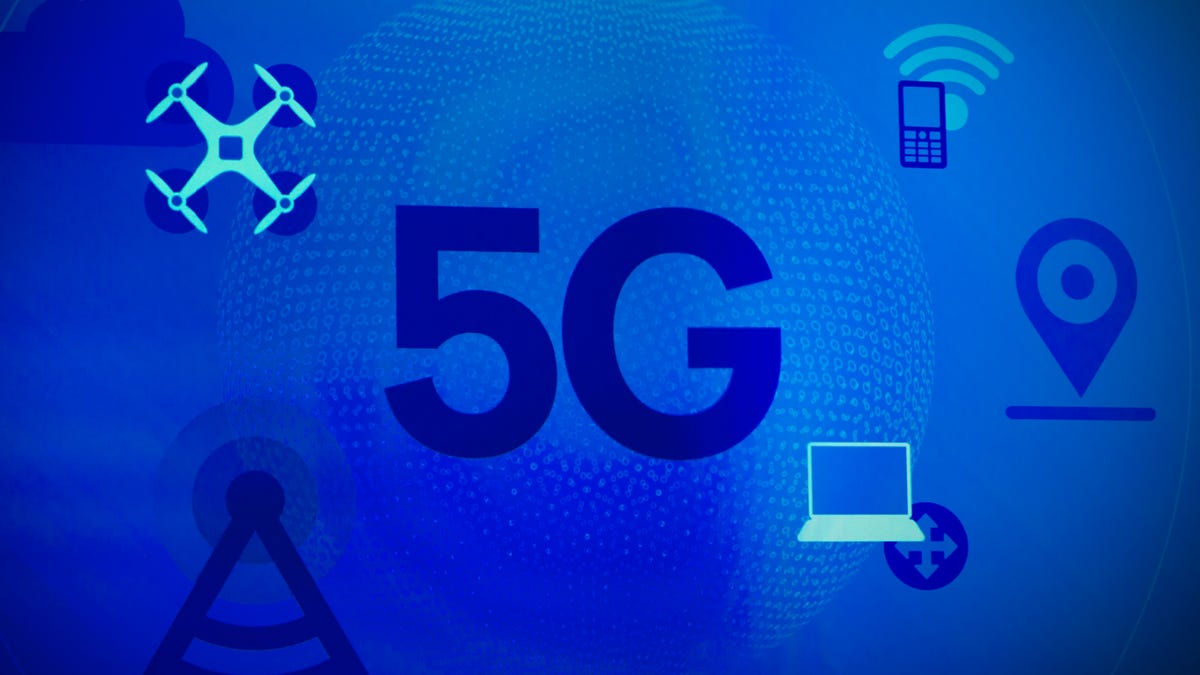T-Mobile rips Verizon's 5G broadband plan as 'unrealistic'
As Verizon pushes back a self-imposed deadline, T-Mobile says it remains committed to rolling out superfast 5G commercial service by 2020.

T-Mobile is getting into the holiday spirit -- by laying into rival Verizon .
On Monday, T-Mobile CEO John Legere used Twitter to call out Verizon for its plan to speed up wireless broadband service, using a next-generation cellular technology called 5G. Specifically, he criticized the rival for missing a self-imposed deadline of deploying commercial service by 2017 (which CNET first reported).
Verizon said last week that the planned rollout of its 5G broadband service would instead happen in the second half of next year, starting with Sacramento, California, and expanding to four other, unnamed cities.
T-Mobile CTO Neville Ray is skeptical about Verizon's early 5G efforts.
In a follow-up interview on Tuesday, T-Mobile Chief Technology Officer Neville Ray called Verizon's plan to deploy 5G "unrealistic," citing the technical hurdles of using so-called millimeter wave spectrum, or radio airwaves that run at a high frequency and can deliver a superfast internet connection.
A Verizon spokesman declined to respond to T-Mobile's comments, but noted that the company was satisfied with its progress.
The comments underscore a difference in how Verizon and T-Mobile view 5G, a technology that will greatly rev mobile speeds beyond our fastest fixed-line broadband connection -- imagine downloading the entire "Simpsons" series in high definition in about half an hour. Beyond speed, 5G has the potential to change our world by offering an easier and cheaper way to connect everything from farming equipment to self-driving cars.
T-Mobile is focused on building a mobile 5G network that would work something like today's cellular networks, theoretically allowing you to walk around and enjoy fabulously high speeds anywhere. Ray stuck with his commitment to offer commercial deployment of 5G by 2020. The company said in May that it expects to have a nationwide 5G network before its rivals.
Verizon shares that vision, but believes it can move more quickly to deliver 5G as a replacement for your home broadband connection, with the first homes coming getting hooked up next year.
"This is the top of the first inning on 5G," Verizon Chief Financial Officer Matt Ellis said at an investor conference on Tuesday. He estimated there's an addressable market of 30 million homes for 5G broadband.
Early hype
Verizon kicked off the initial hype for 5G in 2015, when Roger Gurnani, chief information and technology architect for the company, staked out field trials in 2016 and "some level of commercial deployment" for this year.
"The future is going to bring more stuff that I can't really describe," Gurnani said in an interview at the time.
While on stage at a Samsung press conference at the Mobile World Congress trade show in February, he teased the potential for a 5G phone to come in 2018.
Gurnani wasn't clear on whether that would be a finished product or a prototype, but Sherif Hanna, the head of product and technology marketing for the 5G business at chipmaker Qualcomm, said in an interview in October that he expects 5G phones to be commercially deployed in the first half of 2019.
Ray criticized Verizon for hyping the technology before it was ready. He added that T-Mobile has no plan to offer 5G broadband because "we think the economics are flawed."
Verizon is solely employing millimeter wave spectrum to deliver those broadband speeds into the home. While it's great at carrying a high-speed signal, the technology has a much shorter range than the spectrum used in today's cellular networks and is notoriously fickle and easy to disrupt. Watch out if the wind blows a tree branch in between you and the signal transmitter.
But Verizon has spent years working with the spectrum, and with technology like massive MIMO, which is essentially like having multiple people shouting into multiple ears for better clarity, and beam forming, a technique of manipulating where a signal can go, the company has been able to get around some of its previous shortcomings, a spokesman said.
"We found in most cases, most of the issues we anticipated were not barriers to offering a service to customers," he said.
In contrast, T-Mobile plans to use multiple bands of spectrum, from the lower-band 600 megahertz spectrum it won in the Federal Communications Commission auction this year to its own swath of high-band millimeter wave spectrum, to power its 5G ambitions.
"We want to make sure people understand that there are really a lot of good ingredients in a 5G cake," Ray said.
The result is a network that likely won't come for another two years.
Verizon isn't stopping at 5G broadband services. Like T-Mobile, it's waiting for a set of global standards around 5G technology to firm up before it rolls out its own mobile network. Likewise, it'll pair that millimeter wave spectrum with the radio airwaves it's using for 4G LTE for more complete coverage.
The Verizon spokesman noted that the company is the only carrier in the US with actual trials using 5G technology.
When and where we'll actually see that 5G materialize is still up in the air.
Tech Enabled: CNET chronicles tech's role in providing new kinds of accessibility.
CNET Magazine: Check out a sampling of the stories you'll find in CNET's newsstand edition.

